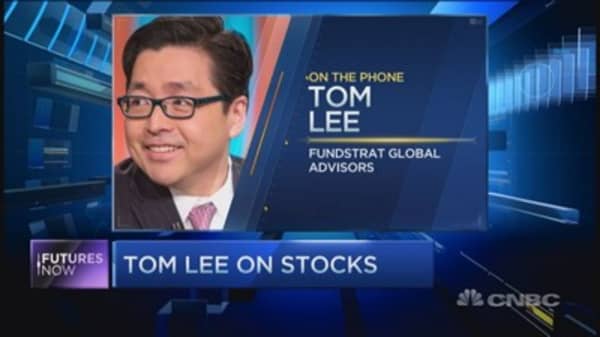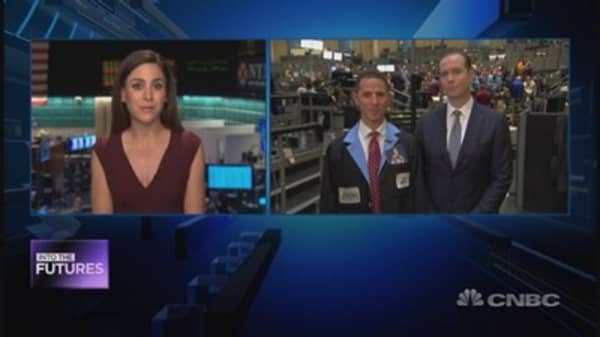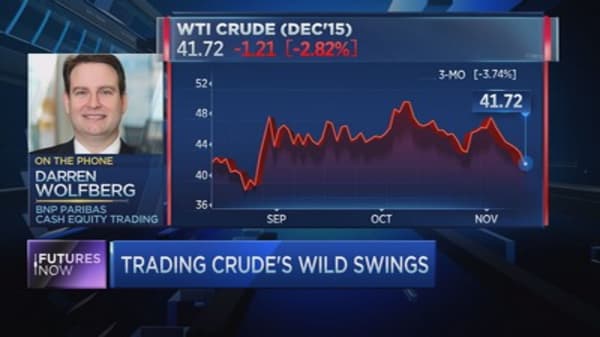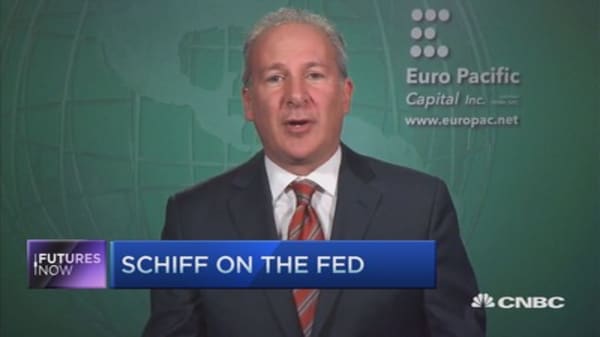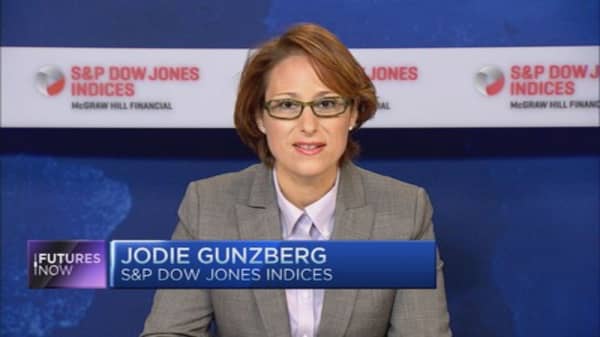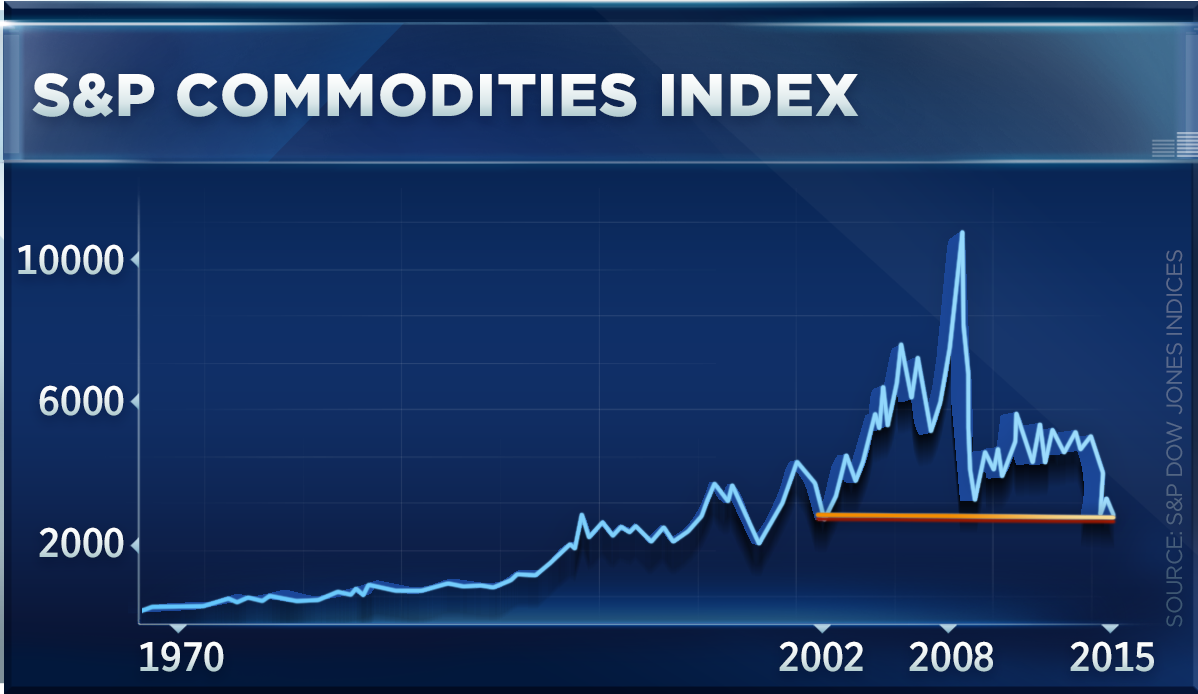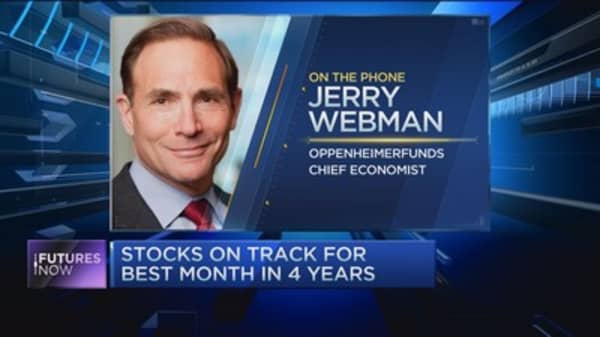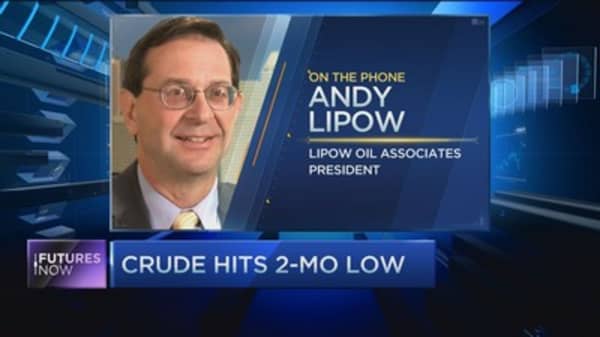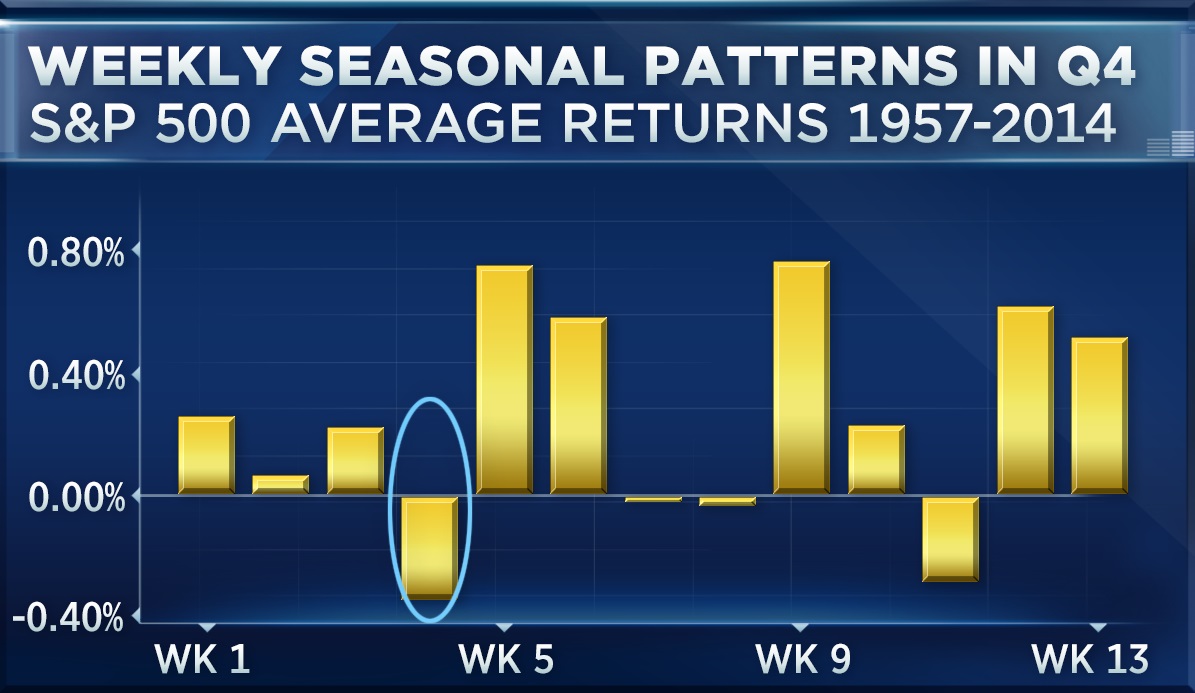The Federal Reserve now looks set to raise rates in December, partially based on expectation that inflation is set to finally rise to its 2 percent target. There's only one potential problem.
There's actually a way that markets can see where investors think inflation will go. And they do not exactly see eye to eye with America's central bank.
Over the next five years, annual inflation is expected to run at less than 1.3 percent. Even over the next ten, investors are looking for no more than 1.6 percent per year.
The Fed is well aware of this thinking among investors. In fact, the minutes to the Fed's October meeting record that "a couple of members expressed concern about the continued decline in market-based measures of inflation compensation."
To be sure, the comparison here is not apples-to-apples.
The popular market-based measures of inflation referenced above are simply found by comparing the yield on a Treasury bond and a Treasury Inflation-Protected Security (or TIPS) of the same maturity.
Since a TIPS bond pays an investor an amount that varies with the Consumer Price Index (CPI), and a Treasury bond is not adjusted for inflation, the Treasury yield minus the TIPS yield should theoretically produce the market's expectations of inflation. That number is known as a "breakeven rate" (since it is the inflation amount that will make the TIPS investor and the Treasury investor break even with each other).
While the breakeven rate reflects expectations about the more popular CPI inflation rate, the Fed targets the alternative personal consumption expenditures (PCE) metric.
Still, it is the trend in the breakeven rate that the Fed has its eye on, rather than the absolute percentage. And while the PCE and CPI readings may differ from month to month, the measures are almost perfectly correlated over time.







